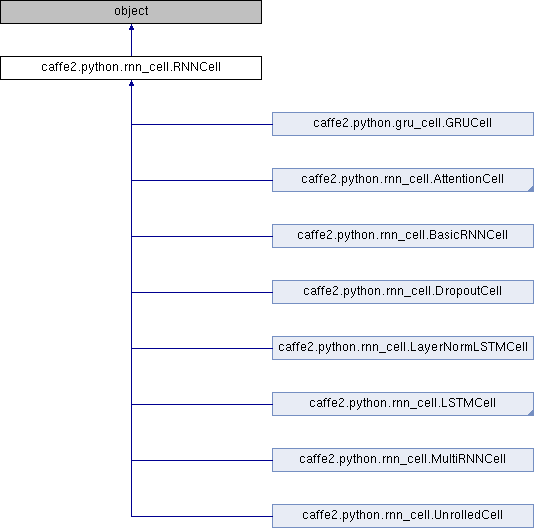|
|
def | __init__ (self, name=None, forward_only=False, initializer=None) |
| |
|
def | initializer (self) |
| |
|
def | initializer (self, value) |
| |
|
def | scope (self, name) |
| |
|
def | apply_over_sequence (self, model, inputs, seq_lengths=None, initial_states=None, outputs_with_grads=None) |
| |
|
def | apply (self, model, input_t, seq_lengths, states, timestep) |
| |
| def | apply_override (self, model, input_t, seq_lengths, timestep, extra_inputs=None) |
| |
| def | prepare_input (self, model, input_blob) |
| |
| def | get_output_state_index (self) |
| |
| def | get_state_names (self) |
| |
| def | get_state_names_override (self) |
| |
| def | get_output_dim (self) |
| |
Base class for writing recurrent / stateful operations.
One needs to implement 2 methods: apply_override
and get_state_names_override.
As a result base class will provice apply_over_sequence method, which
allows you to apply recurrent operations over a sequence of any length.
As optional you could add input and output preparation steps by overriding
corresponding methods.
Definition at line 48 of file rnn_cell.py.
| def caffe2.python.rnn_cell.RNNCell.apply_override |
( |
|
self, |
|
|
|
model, |
|
|
|
input_t, |
|
|
|
seq_lengths, |
|
|
|
timestep, |
|
|
|
extra_inputs = None |
|
) |
| |
A single step of a recurrent network to be implemented by each custom
RNNCell.
model: ModelHelper object new operators would be added to
input_t: singlse input with shape (1, batch_size, input_dim)
seq_lengths: blob containing sequence lengths which would be passed to
LSTMUnit operator
states: previous recurrent states
timestep: current recurrent iteration. Could be used together with
seq_lengths in order to determine, if some shorter sequences
in the batch have already ended.
extra_inputs: list of tuples (input, dim). specifies additional input
which is not subject to prepare_input(). (useful when a cell is a
component of a larger recurrent structure, e.g., attention)
Definition at line 192 of file rnn_cell.py.
| def caffe2.python.rnn_cell.RNNCell.prepare_input |
( |
|
self, |
|
|
|
model, |
|
|
|
input_blob |
|
) |
| |
If some operations in _apply method depend only on the input,
not on recurrent states, they could be computed in advance.
model: ModelHelper object new operators would be added to
input_blob: either the whole input sequence with shape
(sequence_length, batch_size, input_dim) or a single input with shape
(1, batch_size, input_dim).
Definition at line 216 of file rnn_cell.py.

 1.8.11
1.8.11